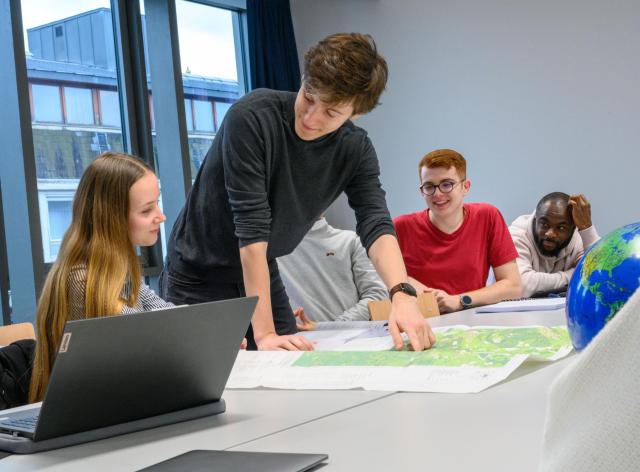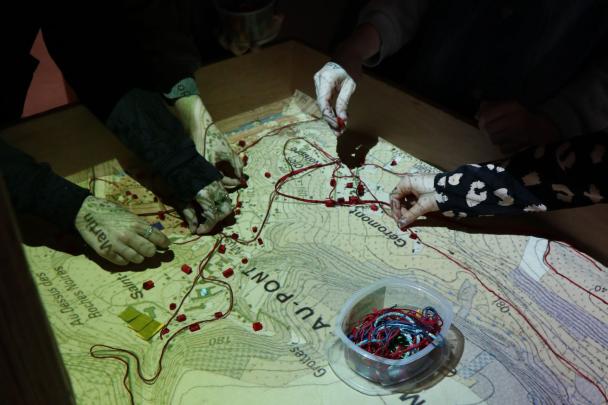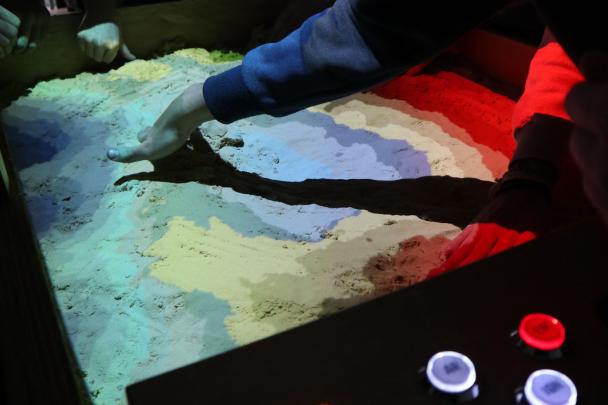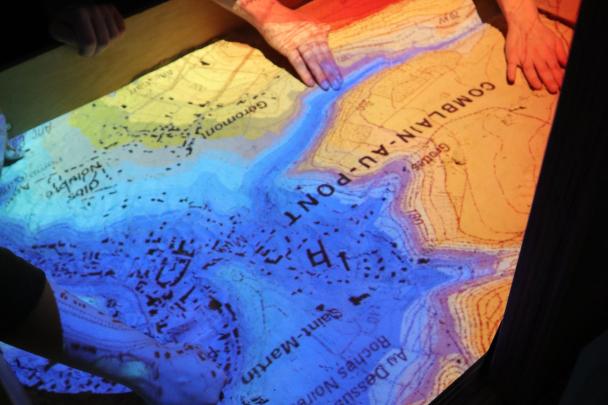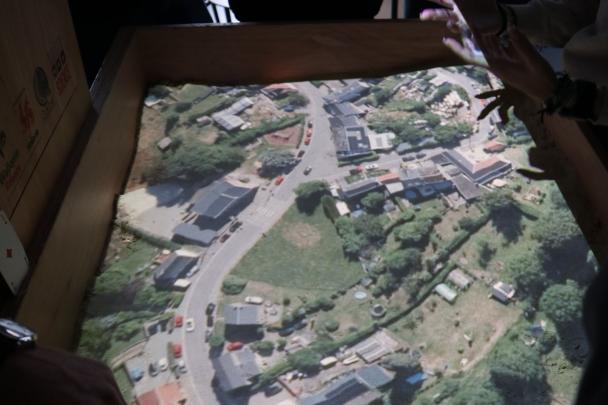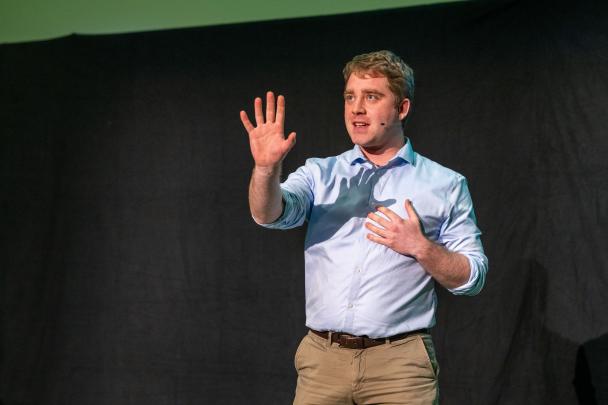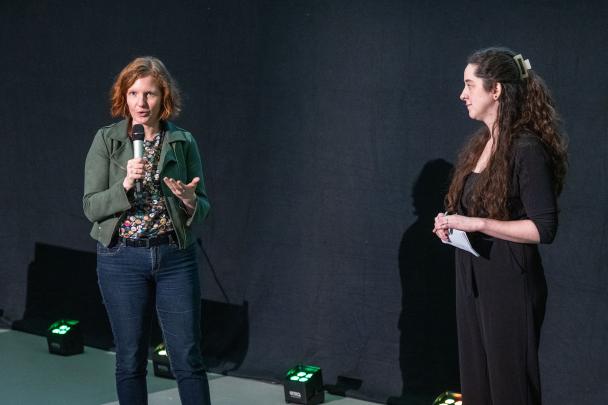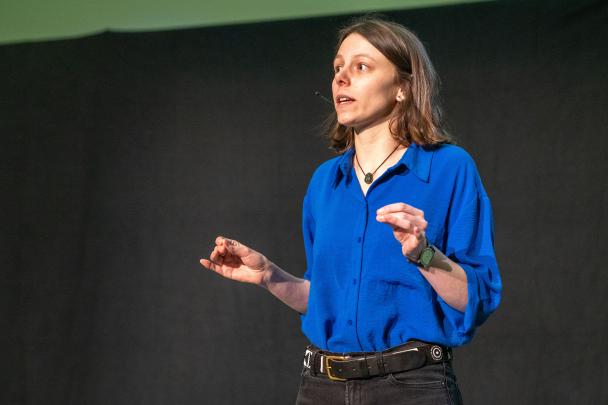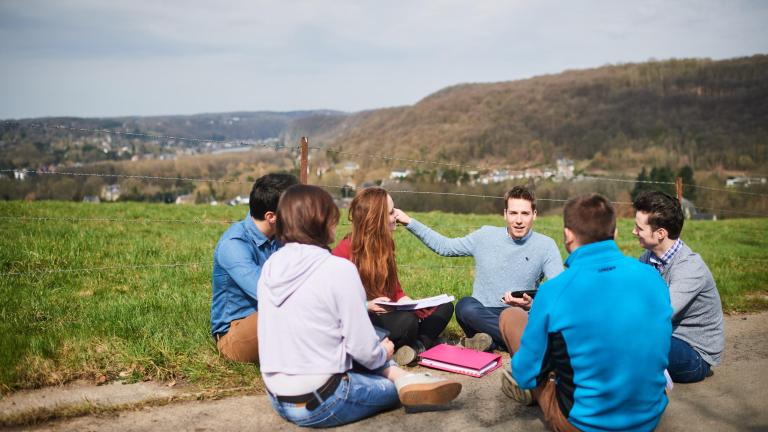Geography is concerned with the interactions between man and the environment, and the processes that influence these interactions, such as urbanization, agriculture, mobility, trade, globalization and climate change. A science of action, geography offers a framework for reflection and tools to guide decision-makers towards sustainable solutions, thus promoting the harmonious development of societies and the preservation of the environment.
.
Geography is a committed science. It explores, deciphers and improves the organization of our environment, thus contributing to a better developed and more sustainable planet.
Geographers, with their unique perspective, examine the complex links between man and his habitat. They go beyond the simple questions of "where" and "at what scale", looking at the reasons for "why here rather than elsewhere?" and ways of optimizing the management of space.
At the crossroads of the natural and social sciences, geography occupies a central position, proposing comprehensive and thoughtful solutions to questions of location. It does not content itself with theories, but implements modern tools such as computerized cartography, geographic information systems, remote sensing, satellite imagery and data analysis.
That's not all: geography goes beyond theory by putting these tools at the service of spatial planning, technical cooperation and development aid policies, demonstrating its commitment to humanity.
Geographers observe and analyze territories, organizations, individuals and ecosystems in order to understand them, to grasp their complexity and then to propose solutions.
Discover the geographer's professions in our newsroom article...
Find out more about the Geography Department
Spotlight
News

Two complementary points of view to put environmental protection back at the heart of public debate
Two complementary points of view to put environmental protection back at the heart of public debate
The University of Namur is soon to offer two inaugural lessons for two Francqui Chairs, one in the Faculty of Science and the other in the Faculty of Law. Open to all, the inaugural lectures will be followed by a local drink. These events are free, upon registration.
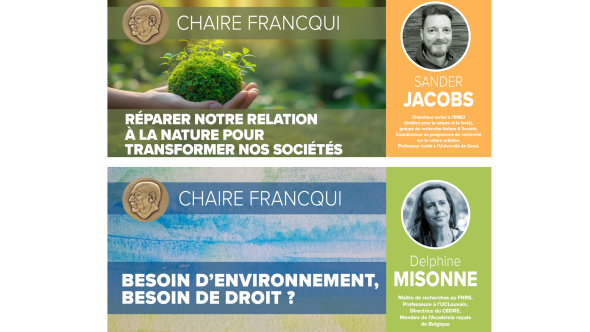
Chaire Francqui 2025-2026 en sciences | Repairing our relationship with Nature to transform our societies
The biodiversity crisis isn't just destroying nature: it's also threatening our societies, our well-being and our survival. Based on the scientific assessments and findings of the IPBES (Intergovernmental Science-Policy Platform on Biodiversity and Ecosystem Services), this Francqui Chair will explore our toxic relationship with nature, the global failure to protect it, and the multiple values of living things.
Speaker: Sander Jacobs, Senior Researcher at INBO (Institute for Nature and Forestry), Nature & Society research group, Coordinator of the Urban Nature research program and Visiting Professor at Ghent University.
19/11/2025 - Inaugural lecture | Biodiversity crisis: causes, consequences, and how (not) to get out of it.
Francqui 2025-2026 Chair in Law | Need for environment, need for law?
This Francqui Chair offers a fresh look at the advances but also the tensions that today characterize the way the law organizes society's relationship with the environment. If the ambition to protect the environment has indeed become a legal issue, how are its essential mainsprings evolving, whether in climate matters, in the relationship to human health, or in the status accorded to nature?
The organization of this Chair is fully integrated into the Law School's Fil Rouge 2025-2026 dedicated to this substratum essential to life that is the environment, nature, our earth: "Réenchanter la terre".
Orator: Delphine Misonne, Senior Research Fellow FNRS, Professor at UCLouvain, Director of CEDRE and member of the Royal Academy of Belgium.
27/11/2025 - Inaugural Lesson I Protecting the environment beyond politics
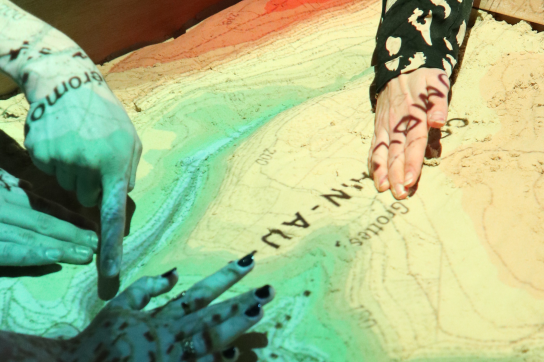
Flood prevention: an innovative teaching activity for geography students
Flood prevention: an innovative teaching activity for geography students
How does a river work? How do river overflows occur? What can be done to protect our territories from these risks? At UNamur, geography students followed an innovative teaching activity, using a 3D augmented reality sandbox, to learn about this issue. What are the aims of this tool? Simulate and analyze natural phenomena. A unique and immersive experience to better understand environmental dynamics and climate risks, carried out in collaboration with the non-profit organization Contrat de Rivière Ourthe.
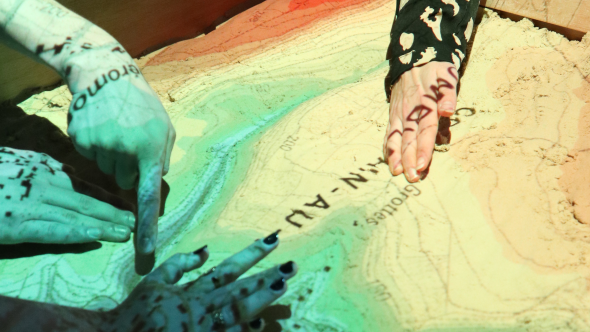
In early October, it was with their hands in the sand that Bac 2 and Bac 3 students from UNamur's Geography Department were able to gain a very concrete understanding of the flooding mechanism. "This activity was organized in partnership with the asbl Contrat de Rivière Ourthe," explains Sébastien Dujardin, teacher-researcher in the Geography Department. "Our students had the opportunity to use a 3D augmented reality sandbox, developed as part of the EXACT LAB project (Exploration 3D et Adaptation aux Conséquences des Changements Climatiques sur un Territoire)", he details.
During this activity, students modeled the relief by hand and simulated virtual rainfall to observe runoff on the ground, thanks to 3D Kinect technology. Various layers of geographic information, such as topographic maps, aerial photos and runoff maps, were then projected onto the relief to further the reflection.
Students were able to explore how rivers work, concepts related to flooding (return period, amount of precipitation, hydrometry, etc.), and analyze the territorial issues most at risk (schools, homes, roads). They also discussed and tested various planning measures, such as hedge planting, the creation of stormwater basins and ditches, taking into account natural and human constraints.
"This activity was an excellent opportunity for our students to develop their risk culture, essential in the face of the growing challenges of drought and flooding," Sébastien Dujardin points out again. "The topic of flooding is more topical than ever and represents a major societal challenge. It perfectly illustrates our educational approach: observe, understand and act to better harmonize human activities with an ever-changing environment," he concludes.
Combining theory and practice: a winning combo for students
Alison Castremanne student in Bac 3 Geography
"This activity highlighted the importance of participatory planning and management involving the various stakeholders in the territory to deal with issues such as flooding. For example, we found that anti-flooding practices implemented upstream can have a significant impact on flows downstream. Modeling through this activity has enabled us to visualize in concrete terms the flows and preventive practices adapted to the geographical context (topography, location of villages in relation to slopes, budgetary constraints, etc.). What I particularly appreciate about UNamur is the dynamism of the training, which combines enriching practical activities (field days, workshops, group work) with high-quality theoretical teaching. What's more, the proximity and commitment of the professors and assistants offer attentive and enriching support for students."
Léo Raymond student in BAC3 geography
"The "sandbox" tool helped me understand that a territory is never uniform: development that is conceivable across a commune is not at all so 5 km away. From this point of view, it's very important to analyze what's around us and react accordingly to avoid too much damage."
What fascinates me about my studies in geography is the diversity of the subject we tackle. Whether it's environmental, anthropocentric or even economic, everything is tackled and this enables us to build up a very important knowledge base for the future."
Geography at UNamur
Are you interested in studying geography? Find out more about our training courses!
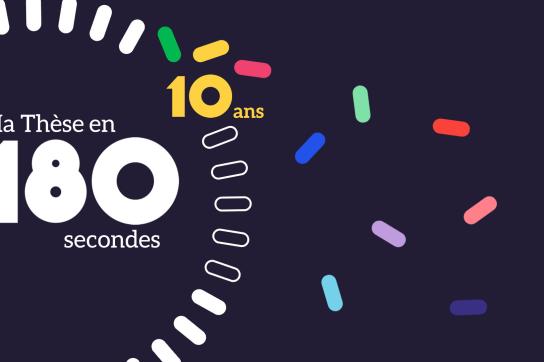
10 years of the MT180 competition: 3 UNamur candidates take part in the national final in Brussels
10 years of the MT180 competition: 3 UNamur candidates take part in the national final in Brussels
On March 24, 2024, the tenth edition of the MT180 competition, a French-language competition for the popularization of science, took place at UNamur. Two physicists and a geographer represented our university at the national final, held in Brussels on May 16.
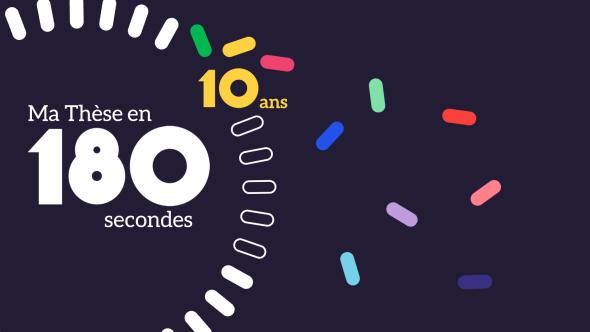
The Confluent des Savoirs, local organizers of the event, wanted to focus on one of the societal missions of research: popularized communication to a wide audience.
Annick Castiaux, Rector of UNamur, introduced the competition with the rediscovery of a sequence from the 1998 program Matière Grise, in which she presented, in two minutes, the objective of her research in optical physics. Encouraging young researchers to learn how to communicate in lay terms, Annick Castiaux stressed the need to adapt codified scientific discourse to reduce the distance between university research and other players in society. Presented by Aline Wilmet of Confluent des Savoirs, the event was an opportunity to explore the history of the competition at UNamur and to exchange experiences with former candidates.
This year, 12 candidates took part in this local final: Manel Barkallah (computer science), Louis Rassinfosse (physics), Charline Focant (biology), Guillaume Nguyen (computer science), Yves Blanco Alvarez (biology), Alexandra Decloux (veterinary medicine), Adélie Lannoy (biology), Loris Chavée (physics), Yasmine Akaichi (computer science), Valentin Job (physics), Antoine Hubermont (computer science) and Camille Morlinghem (geography).
Their performances were enthusiastically received by the audience: 280 people gathered in the Rosalind Franklin auditorium to discover the latest in interdisciplinary research and its societal challenges. In order to prepare them optimally for the demands of the competition and those of their thesis or lecture defense, candidates benefited from training in popularized communication, the construction of a structured pitch, as well as appropriate speaking and body language.
The candidates' pitches were evaluated by a jury of professionals in the field of scientific communication and popularization: Géraldine Tran, editor-in-chief of Athena, SPW's science mag; Nathan Uyttendaele, statistician and web popularizer via his YouTube channel "Chat Sceptique"; Charlotte Benedetti, director of Pavillon (KIKK asbl) in Namur and François-Xavier Fiévez, pedagogue, didactician and improviser, Vice-Rector for Student and Social Affairs at UNamur.
The 3 UNamur winners
The People's Choice Award went to Louis Rassinfosse for his pitch "Les nanoparticules: ces artisans des couleurs", left in photo. The second jury prize went to Loris Chavée for his pitch "Sun, film and foam .... an energy cocktail!", right in photo. The jury's first prize went to Camille Morlinghem for his pitch "Map me if you can", in the center of the photo.
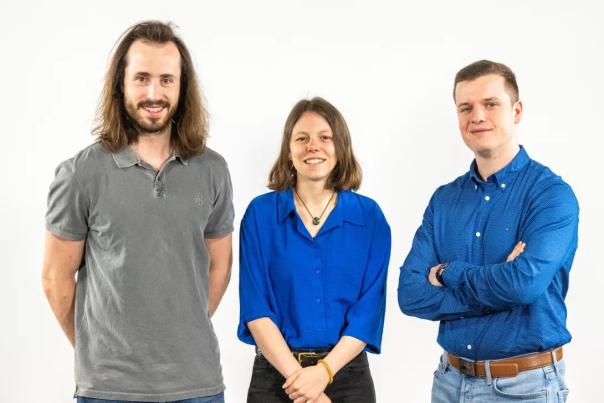
The regional competition is the first step in the MT180 adventure. The three winners from Namur will represent UNamur at the national final to be held on May 16 at the Solbosch campus in Brussels. The winner will represent Belgium this autumn at the international final in Abidjan (Ivory Coast).
The 2024 national final
On May 16, 2024, we'll be celebrating 10 years of the MT180 competition at the national finals to be held on ULB's Solbosch campus in Brussels. At this event, 15 PhD students, including the 3 UNamur prizewinners, will take up the challenge of popularizing their thesis topic with clarity to captivate an uninformed audience, in 3 minutes flat!
The jury will be made up of 6 personalities from French-speaking universities, the press and the world of popular science. The winner will represent Belgium at the international competition to be held in Abidjan, Côte d'Ivoire, the week of November 18, 2024.
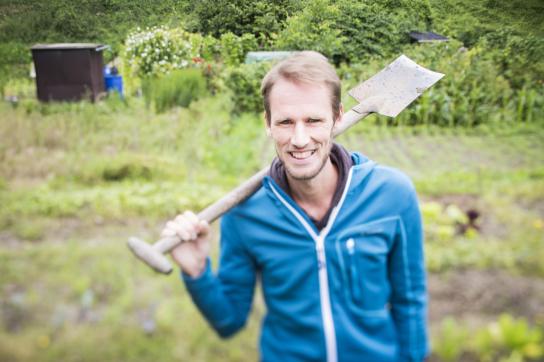
« Let's take nature’s values into account »
« Let's take nature’s values into account »
The Intergovernmental Science-Policy Platform on Biodiversity and Ecosystem Services (IPBES) published a report (August 2022) which lists and assesses the different values we place on nature. This is a huge task carried out over three years by experts from all over the world, including Nicolas Dendoncker, professor at the Department of geography and member of the ILEE Institute at the UNamur.
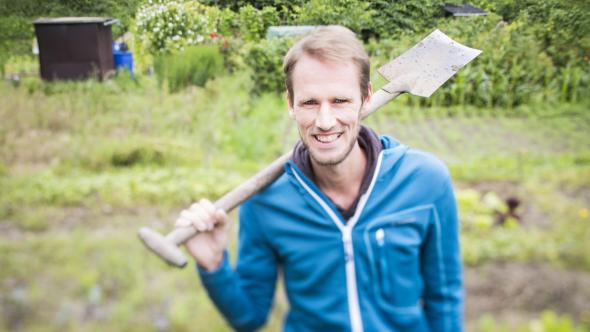
« Les profits à court terme et la croissance économique font l’objet d’une attention prédominante dans le monde entier, tandis que les multiples valeurs de la nature sont rarement prises en compte dans les décisions politiques ».
Résolument interdisciplinaire et fondée sur un examen approfondi mené pendant 3 ans, par 82 scientifiques originaires de toutes les régions du monde, cette étude s’appuie sur plus de 13 000 références, dont des publications scientifiques et des sources d’information issues des savoirs autochtones et locaux. Elle s’inscrit également dans la continuité du Rapport d’évaluation mondiale 2019 de l’IPBES, qui présente le rôle de la croissance économique comme l’un des principaux moteurs de la destruction de la nature, responsable de la menace d’extinction pesant sur un million d’espèces végétales et animales.
Les scientifiques ont identifié une cinquantaine de méthodes et approches destinées à rendre visibles les diverses valeurs de la nature. Leur analyse montre clairement que les décisions économiques et politiques ont donné la priorité à certaines valeurs de la nature, en particulier les valeurs instrumentales basées sur le marché, telles que celles associées à la nourriture produite de manière intensive. « Bien qu'elles soient souvent privilégiées dans l'élaboration des politiques, les valeurs marchandes ne reflètent pas adéquatement la manière dont les changements dans la nature affectent la qualité de vie des personnes. En outre, l'élaboration des politiques néglige les nombreuses valeurs non marchandes associées aux contributions de la nature aux personnes, telles que la régulation du climat et l'identité culturelle », indique le rapport.
« Ainsi, un projet de développement peut générer des avantages économiques et des emplois pour lesquels les valeurs instrumentales de la nature peuvent être évaluées, mais il peut également entrainer la disparition d’espèces, associée aux valeurs intrinsèques de la nature, et la destruction de sites patrimoniaux importants pour l’identité culturelle, affectant ainsi les valeurs relationnelles de la nature. Ces valeurs intrinsèques et relationnelles sont largement exclues de la prise de décision », précise Nicolas Dendoncker professeur au Département de géographie, membre de l'Institut ILEE de l’UNamur et l’un des deux scientifiques belges participant à l’élaboration des rapports de l’IPBES.
« Orienter la prise de décision vers les multiples valeurs de la nature est un élément très important de la transformation profonde du système, laquelle est nécessaire pour lutter contre la crise mondiale de la biodiversité actuelle », conclut-il.
Le rapport présente quatre « leviers » centrés sur des valeurs qui peuvent contribuer à créer les conditions nécessaires au changement porteur de transformation indispensable pour que l’avenir soit plus durable et plus juste : Reconnaître les diverses valeurs de la nature Intégrer différentes valeurs dans le processus décisionnel Réformer les politiques et stimuler le changement institutionnel Modifier les normes et les objectifs au niveau de la société pour soutenir les valeurs alignées sur la durabilité dans tous les secteurs.
Ce nouveau rapport vient d’être validé par les 139 gouvernements commanditaires. Il sera au centre des discussions de la Cop 15 Biodiversité qui doit se tenir à Montréal en décembre prochain.
« Participer à l’élaboration de ce rapport a été une expérience très enrichissante. Pendant ces trois années de travail, nous avons eu la chance d’être confrontés à une très forte interdisciplinarité couplée à une grande interculturalité au sein de l’équipe des scientifiques », se réjouit Nicolas Dendoncker. Outre la production de ce rapport, ce travail intense va également permettre la publication, dans les prochains mois, d’une série d’articles scientifiques en lien avec la thématique de la biodiversité et de sa sauvegarde.
Souvent décrit comme le « GIEC de la biodiversité », l’IPBES est un organisme intergouvernemental indépendant comprenant 139 États membres. Mis en place par les gouvernements en 2012, il fournit aux décideurs des évaluations scientifiques objectives de l’état des connaissances sur la biodiversité de la planète, les écosystèmes et les contributions qu’ils apportent aux populations, ainsi que les outils et les méthodes permettant de protéger et d’utiliser durablement ces atouts naturels vitaux.

Two complementary points of view to put environmental protection back at the heart of public debate
Two complementary points of view to put environmental protection back at the heart of public debate
The University of Namur is soon to offer two inaugural lessons for two Francqui Chairs, one in the Faculty of Science and the other in the Faculty of Law. Open to all, the inaugural lectures will be followed by a local drink. These events are free, upon registration.

Chaire Francqui 2025-2026 en sciences | Repairing our relationship with Nature to transform our societies
The biodiversity crisis isn't just destroying nature: it's also threatening our societies, our well-being and our survival. Based on the scientific assessments and findings of the IPBES (Intergovernmental Science-Policy Platform on Biodiversity and Ecosystem Services), this Francqui Chair will explore our toxic relationship with nature, the global failure to protect it, and the multiple values of living things.
Speaker: Sander Jacobs, Senior Researcher at INBO (Institute for Nature and Forestry), Nature & Society research group, Coordinator of the Urban Nature research program and Visiting Professor at Ghent University.
19/11/2025 - Inaugural lecture | Biodiversity crisis: causes, consequences, and how (not) to get out of it.
Francqui 2025-2026 Chair in Law | Need for environment, need for law?
This Francqui Chair offers a fresh look at the advances but also the tensions that today characterize the way the law organizes society's relationship with the environment. If the ambition to protect the environment has indeed become a legal issue, how are its essential mainsprings evolving, whether in climate matters, in the relationship to human health, or in the status accorded to nature?
The organization of this Chair is fully integrated into the Law School's Fil Rouge 2025-2026 dedicated to this substratum essential to life that is the environment, nature, our earth: "Réenchanter la terre".
Orator: Delphine Misonne, Senior Research Fellow FNRS, Professor at UCLouvain, Director of CEDRE and member of the Royal Academy of Belgium.
27/11/2025 - Inaugural Lesson I Protecting the environment beyond politics

Flood prevention: an innovative teaching activity for geography students
Flood prevention: an innovative teaching activity for geography students
How does a river work? How do river overflows occur? What can be done to protect our territories from these risks? At UNamur, geography students followed an innovative teaching activity, using a 3D augmented reality sandbox, to learn about this issue. What are the aims of this tool? Simulate and analyze natural phenomena. A unique and immersive experience to better understand environmental dynamics and climate risks, carried out in collaboration with the non-profit organization Contrat de Rivière Ourthe.

In early October, it was with their hands in the sand that Bac 2 and Bac 3 students from UNamur's Geography Department were able to gain a very concrete understanding of the flooding mechanism. "This activity was organized in partnership with the asbl Contrat de Rivière Ourthe," explains Sébastien Dujardin, teacher-researcher in the Geography Department. "Our students had the opportunity to use a 3D augmented reality sandbox, developed as part of the EXACT LAB project (Exploration 3D et Adaptation aux Conséquences des Changements Climatiques sur un Territoire)", he details.
During this activity, students modeled the relief by hand and simulated virtual rainfall to observe runoff on the ground, thanks to 3D Kinect technology. Various layers of geographic information, such as topographic maps, aerial photos and runoff maps, were then projected onto the relief to further the reflection.
Students were able to explore how rivers work, concepts related to flooding (return period, amount of precipitation, hydrometry, etc.), and analyze the territorial issues most at risk (schools, homes, roads). They also discussed and tested various planning measures, such as hedge planting, the creation of stormwater basins and ditches, taking into account natural and human constraints.
"This activity was an excellent opportunity for our students to develop their risk culture, essential in the face of the growing challenges of drought and flooding," Sébastien Dujardin points out again. "The topic of flooding is more topical than ever and represents a major societal challenge. It perfectly illustrates our educational approach: observe, understand and act to better harmonize human activities with an ever-changing environment," he concludes.
Combining theory and practice: a winning combo for students
Alison Castremanne student in Bac 3 Geography
"This activity highlighted the importance of participatory planning and management involving the various stakeholders in the territory to deal with issues such as flooding. For example, we found that anti-flooding practices implemented upstream can have a significant impact on flows downstream. Modeling through this activity has enabled us to visualize in concrete terms the flows and preventive practices adapted to the geographical context (topography, location of villages in relation to slopes, budgetary constraints, etc.). What I particularly appreciate about UNamur is the dynamism of the training, which combines enriching practical activities (field days, workshops, group work) with high-quality theoretical teaching. What's more, the proximity and commitment of the professors and assistants offer attentive and enriching support for students."
Léo Raymond student in BAC3 geography
"The "sandbox" tool helped me understand that a territory is never uniform: development that is conceivable across a commune is not at all so 5 km away. From this point of view, it's very important to analyze what's around us and react accordingly to avoid too much damage."
What fascinates me about my studies in geography is the diversity of the subject we tackle. Whether it's environmental, anthropocentric or even economic, everything is tackled and this enables us to build up a very important knowledge base for the future."
Geography at UNamur
Are you interested in studying geography? Find out more about our training courses!

10 years of the MT180 competition: 3 UNamur candidates take part in the national final in Brussels
10 years of the MT180 competition: 3 UNamur candidates take part in the national final in Brussels
On March 24, 2024, the tenth edition of the MT180 competition, a French-language competition for the popularization of science, took place at UNamur. Two physicists and a geographer represented our university at the national final, held in Brussels on May 16.

The Confluent des Savoirs, local organizers of the event, wanted to focus on one of the societal missions of research: popularized communication to a wide audience.
Annick Castiaux, Rector of UNamur, introduced the competition with the rediscovery of a sequence from the 1998 program Matière Grise, in which she presented, in two minutes, the objective of her research in optical physics. Encouraging young researchers to learn how to communicate in lay terms, Annick Castiaux stressed the need to adapt codified scientific discourse to reduce the distance between university research and other players in society. Presented by Aline Wilmet of Confluent des Savoirs, the event was an opportunity to explore the history of the competition at UNamur and to exchange experiences with former candidates.
This year, 12 candidates took part in this local final: Manel Barkallah (computer science), Louis Rassinfosse (physics), Charline Focant (biology), Guillaume Nguyen (computer science), Yves Blanco Alvarez (biology), Alexandra Decloux (veterinary medicine), Adélie Lannoy (biology), Loris Chavée (physics), Yasmine Akaichi (computer science), Valentin Job (physics), Antoine Hubermont (computer science) and Camille Morlinghem (geography).
Their performances were enthusiastically received by the audience: 280 people gathered in the Rosalind Franklin auditorium to discover the latest in interdisciplinary research and its societal challenges. In order to prepare them optimally for the demands of the competition and those of their thesis or lecture defense, candidates benefited from training in popularized communication, the construction of a structured pitch, as well as appropriate speaking and body language.
The candidates' pitches were evaluated by a jury of professionals in the field of scientific communication and popularization: Géraldine Tran, editor-in-chief of Athena, SPW's science mag; Nathan Uyttendaele, statistician and web popularizer via his YouTube channel "Chat Sceptique"; Charlotte Benedetti, director of Pavillon (KIKK asbl) in Namur and François-Xavier Fiévez, pedagogue, didactician and improviser, Vice-Rector for Student and Social Affairs at UNamur.
The 3 UNamur winners
The People's Choice Award went to Louis Rassinfosse for his pitch "Les nanoparticules: ces artisans des couleurs", left in photo. The second jury prize went to Loris Chavée for his pitch "Sun, film and foam .... an energy cocktail!", right in photo. The jury's first prize went to Camille Morlinghem for his pitch "Map me if you can", in the center of the photo.

The regional competition is the first step in the MT180 adventure. The three winners from Namur will represent UNamur at the national final to be held on May 16 at the Solbosch campus in Brussels. The winner will represent Belgium this autumn at the international final in Abidjan (Ivory Coast).
The 2024 national final
On May 16, 2024, we'll be celebrating 10 years of the MT180 competition at the national finals to be held on ULB's Solbosch campus in Brussels. At this event, 15 PhD students, including the 3 UNamur prizewinners, will take up the challenge of popularizing their thesis topic with clarity to captivate an uninformed audience, in 3 minutes flat!
The jury will be made up of 6 personalities from French-speaking universities, the press and the world of popular science. The winner will represent Belgium at the international competition to be held in Abidjan, Côte d'Ivoire, the week of November 18, 2024.

« Let's take nature’s values into account »
« Let's take nature’s values into account »
The Intergovernmental Science-Policy Platform on Biodiversity and Ecosystem Services (IPBES) published a report (August 2022) which lists and assesses the different values we place on nature. This is a huge task carried out over three years by experts from all over the world, including Nicolas Dendoncker, professor at the Department of geography and member of the ILEE Institute at the UNamur.

« Les profits à court terme et la croissance économique font l’objet d’une attention prédominante dans le monde entier, tandis que les multiples valeurs de la nature sont rarement prises en compte dans les décisions politiques ».
Résolument interdisciplinaire et fondée sur un examen approfondi mené pendant 3 ans, par 82 scientifiques originaires de toutes les régions du monde, cette étude s’appuie sur plus de 13 000 références, dont des publications scientifiques et des sources d’information issues des savoirs autochtones et locaux. Elle s’inscrit également dans la continuité du Rapport d’évaluation mondiale 2019 de l’IPBES, qui présente le rôle de la croissance économique comme l’un des principaux moteurs de la destruction de la nature, responsable de la menace d’extinction pesant sur un million d’espèces végétales et animales.
Les scientifiques ont identifié une cinquantaine de méthodes et approches destinées à rendre visibles les diverses valeurs de la nature. Leur analyse montre clairement que les décisions économiques et politiques ont donné la priorité à certaines valeurs de la nature, en particulier les valeurs instrumentales basées sur le marché, telles que celles associées à la nourriture produite de manière intensive. « Bien qu'elles soient souvent privilégiées dans l'élaboration des politiques, les valeurs marchandes ne reflètent pas adéquatement la manière dont les changements dans la nature affectent la qualité de vie des personnes. En outre, l'élaboration des politiques néglige les nombreuses valeurs non marchandes associées aux contributions de la nature aux personnes, telles que la régulation du climat et l'identité culturelle », indique le rapport.
« Ainsi, un projet de développement peut générer des avantages économiques et des emplois pour lesquels les valeurs instrumentales de la nature peuvent être évaluées, mais il peut également entrainer la disparition d’espèces, associée aux valeurs intrinsèques de la nature, et la destruction de sites patrimoniaux importants pour l’identité culturelle, affectant ainsi les valeurs relationnelles de la nature. Ces valeurs intrinsèques et relationnelles sont largement exclues de la prise de décision », précise Nicolas Dendoncker professeur au Département de géographie, membre de l'Institut ILEE de l’UNamur et l’un des deux scientifiques belges participant à l’élaboration des rapports de l’IPBES.
« Orienter la prise de décision vers les multiples valeurs de la nature est un élément très important de la transformation profonde du système, laquelle est nécessaire pour lutter contre la crise mondiale de la biodiversité actuelle », conclut-il.
Le rapport présente quatre « leviers » centrés sur des valeurs qui peuvent contribuer à créer les conditions nécessaires au changement porteur de transformation indispensable pour que l’avenir soit plus durable et plus juste : Reconnaître les diverses valeurs de la nature Intégrer différentes valeurs dans le processus décisionnel Réformer les politiques et stimuler le changement institutionnel Modifier les normes et les objectifs au niveau de la société pour soutenir les valeurs alignées sur la durabilité dans tous les secteurs.
Ce nouveau rapport vient d’être validé par les 139 gouvernements commanditaires. Il sera au centre des discussions de la Cop 15 Biodiversité qui doit se tenir à Montréal en décembre prochain.
« Participer à l’élaboration de ce rapport a été une expérience très enrichissante. Pendant ces trois années de travail, nous avons eu la chance d’être confrontés à une très forte interdisciplinarité couplée à une grande interculturalité au sein de l’équipe des scientifiques », se réjouit Nicolas Dendoncker. Outre la production de ce rapport, ce travail intense va également permettre la publication, dans les prochains mois, d’une série d’articles scientifiques en lien avec la thématique de la biodiversité et de sa sauvegarde.
Souvent décrit comme le « GIEC de la biodiversité », l’IPBES est un organisme intergouvernemental indépendant comprenant 139 États membres. Mis en place par les gouvernements en 2012, il fournit aux décideurs des évaluations scientifiques objectives de l’état des connaissances sur la biodiversité de la planète, les écosystèmes et les contributions qu’ils apportent aux populations, ainsi que les outils et les méthodes permettant de protéger et d’utiliser durablement ces atouts naturels vitaux.
Agenda
Public defense of doctoral thesis in geography and biology: Setondé Constant Gnansounou
Enhancing the Sustainable Use and Resilience of Mangroves in the Anthropocene: An Integrative Social-Ecological Approach.
Jury
- Prof. Nicolas DENDONCKER (UNamur), Chair
- Prof. Sabine HENRY (UNamur), Secretary
- Prof. Frédéric SILVESTRE (UNamur)
- Dr. Sébastien DUJARDIN (UNamur)
- Prof. Kara PELLOWE (Stockholm University)
- Prof. Romain GLELE KAKAI (University of Abomey Calavi)
- Prof. Patrick KESTEMONT (UNamur)
- Prof. Eli THORE (UNamur)
Abstract
Mangroves play an important role in environmental conservation and livelihood provision yet remain one of the most threatened ecosystems on earth. This doctoral study assesses pathways to enhance coastal sustainability in the Anthropocene, by promoting the sustainable use of mangroves and strengthening their social-ecological resilience through an interdisciplinary approach.
The thesis is structured into four specific objectives:
- assessing the role of traditional beliefs and local deities in promoting the sustainable use of mangroves,
- analyzing the synergies between legal frameworks and traditional beliefs in enhancing the social-ecological resilience of mangroves,
- developing a novel interdisciplinary framework to evaluate the social-ecological resilience of mangroves, and
- operationalizing the proposed framework in Benin's mangroves, West Africa.
We collected field data using ethnobiological surveys, drone image analysis and document review, in-depth interviews, focus group discussions, plant and fish inventories across three coastal communities in Benin. The study draws insights from the seven principles of resilience to analyze mangrove sustainability. The interdisciplinary methodology of this study links plant biology, fisheries sciences, and human geography to analyze mangroves as complex social-ecological systems.
Findings of the thesis show that traditional beliefs and local deities play a significant role in regulating the use of mangrove resources, while the overlapping of formal and informal institutions offer opportunities to enhance their social-ecological resilience.
The novel proposed framework called Mangrove Social Ecological Resilience Appraisal (MaSERA) outlines variables and indicators tailored to mangroves to assess their social-ecological resilience. Its application in Benin highlights its potential in identifying factors that enable or erode mangrove resilience, for informed decision making.
The study argues that promoting the sustainable use of mangroves and enhancing their social-ecological resilience represent dual imperatives for achieving coastal sustainability in the Anthropocene. It contributes to the growing body of knowledge on mangrove conservation and provides actionable insights for integrated coastal zone management.


